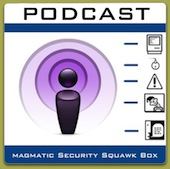Firefox Update 3.5.3 With Flash Version Check
 Thursday, September 10, 2009 at 09:02AM
Thursday, September 10, 2009 at 09:02AM Mozilla has released updates to Firefox which address the following issues, view source articles for details.
- Crashes with evidence of memory corruption (rv:1.9.1.3/1.9.0.14
- TreeColumns dangling pointer vulnerability
- Location bar spoofing via tall line-height Unicode characters
- Chrome privilege escalation with FeedWriter
- Flash Version Check
Mozilla has incorporated a Flash Version Check to insure that the latest version in running for Firefox users. In addition I recommend the No-Script plug-in to get control of scripts from various sites. Users can apply this update by selecting check for updates or going to the direct download page at http://www.mozilla.com/en-US/firefox/firefox.html







